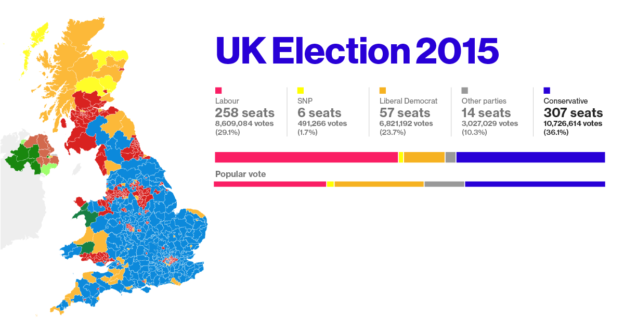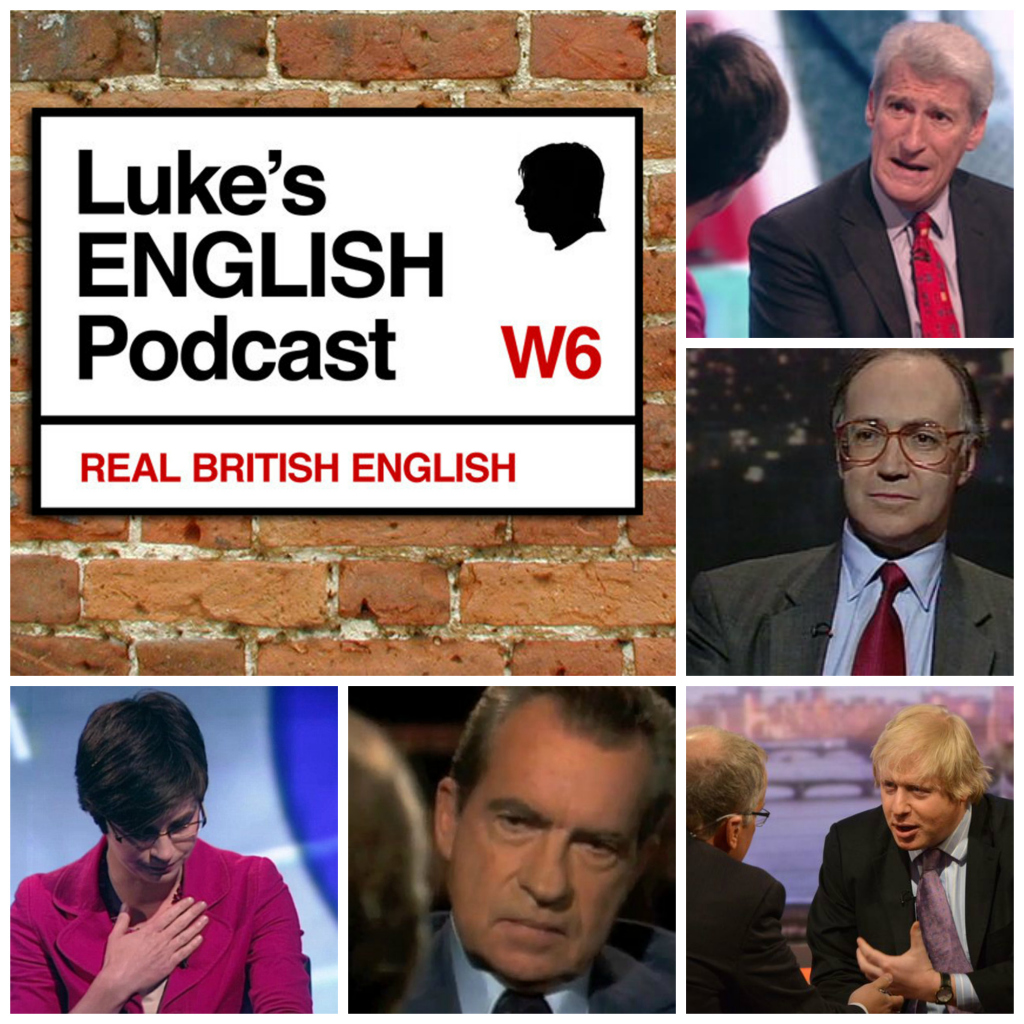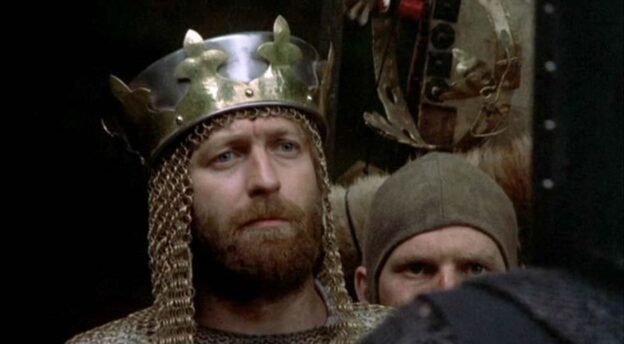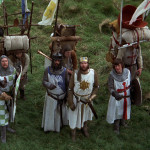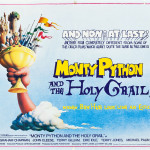In the last two episodes I went into quite a lot of detail about the context and predictions for the general election in the UK which took place just over a week ago. The results came in on the morning of Friday 8 May and a week later we now have a new government which is already getting itself ready to run the country over the next 5 years, implementing various plans, policies and legislation. Listen to this podcast episode for the full details and read the transcript below in order to follow almost all the words and phrases I use in this episode.
![]() [DOWNLOAD]
[DOWNLOAD]
Surprises
The results were pretty surprising in the end, which was a surprise in itself. Despite the fact that we knew the result would be unpredictable, nobody expected a surprise and for that reason the surprise that we got was pretty surprising. It shouldn’t have been a surprise of course, because we all knew that we didn’t know what was going to happen, and because of that, any result would have been surprising. So, what was the surprise? The Conservatives won an outright majority. There was no hung parliament, no coalition, no negotiations and no deal making. Just 5 more years of a David Cameron led Conservative government without the influence of the Liberal Democrats. Just the Tories running the whole show.
Let’s have a look at what happened, and what we can expect over the next 5 years. Of course my comments here are predictions and speculations and I don’t guarantee that it’s all going to happen as I describe it. As ever, we can’t be completely certain about what the future will bring. So, again, you can expect some more surprises. So, be ready to be surprised, if that is possible. Is that possible? Surely if you’re ready for a surprise, it won’t be a surprise. But according to last Friday’s result, that is possible, because we were all ready for an unpredictable result, and then when the actual result wasn’t predicted, we were all surprised by it. Anyway, enough of all this nonsense about surprises.
Is that confusing? Probably. Don’t worry, I’ll make it a bit clearer in a moment.
What were the predictions?
Although we knew it would be difficult to predict, most people were sure that neither of the two big parties (Con & Lab) would gain enough seats to form a majority government (326) and so we’d have another hung parliament like last time.
So, we expected there to be a period of negotiation in which firstly the Conservatives attempted to make a deal with either the Lib Dems if they won enough seats, or possibly UKIP if they won enough seats. I expected that it would be too difficult for the Tories to do this, they wouldn’t be able to make a coalition deal with anyone and then it would be up to Labour to try and make a coalition with either the Lib Dems (difficult to imagine) or the SNP (also difficult to imagine). In fact, most of the outcomes were difficult to imagine for various reasons – most of them being that the parties had ruled out almost all kinds of coalition deal with each other. So, we expected lots of political manoeuvring during the negotiation period, and then some kind of complex and unsatisfying partnership between parties that didn’t really see eye to eye on everything.
A lot of people expected Ed Miliband to be the next PM as it looked more likely that he’d be able to make a deal with one or more of the other parties.
In the end, despite the fact that we all knew the results would be unpredictable, the outcome was generally surprising for everyone. The Tories won an outright majority, with a win of 331 seats – a small majority.
What were the numbers?
Conservatives won 331 seats (up by 24 seats)
Labour won 232 (down by 26 seats)
Liberal Democrats 8 (down by a huge 47)
SNP 56 (up by a massive 50 seats)
UKIP 1 (up by 1)
Plaid Cymru 3 (no change)
Green 1 (no change)
18 seats went to other parties.
What happened to the leaders & parties?
Conservatives
It probably felt like an amazingly huge victory in comparison to what everyone expected – a hung parliament.
Apparently Cameron was surprised by the result. It must have been exciting for him, but I expect the honeymoon period is wearing off now as he faces a number of challenges as PM.
It will certainly be easier for the Tories without the influence of the Lib Dems, but Cameron faces division within his party, particularly over the EU (some Tories are keen to leave, others not), a powerful SNP who will not only block some of his plans but may also demand a Scottish referendum. He will also have to push forward with more unpopular austerity measures.
He made a speech highlighting the importance of unity. He said he plans to be a ‘one nation PM’ – meaning he hopes to appeal to everyone in the UK. He’s pushing that line because he wants to reach out to all the people who didn’t vote for him, and also he must work hard to make sure the whole of the UK doesn’t break up – mainly as a result of Scotland campaigning for more independence.
It’s quite interesting to note that London Mayor Boris Johnson is now an MP. He was a candidate in a London constituency called Uxbridge and South Ruislip, and he won it. So he’s in the House of Commons now too. That’s interesting because we know he’s ambitious and probably has his eyes on the PM position. It was probably a calculated move by the Tory high command. In the event of a possible negotiation with UKIP the Tories would have needed another option for leadership – someone who is quite Eurosceptic and popular with the electorate and Boris fits the bill quite nicely. But since the Tories won an outright majority, Boris has to keep quiet for the time being. Cameron’s leadership is not in question at this moment. However, he has promised that at the end of this term (5 years) he will stand down. Then I expect it will be time for another leadership race for the Tory party and Boris could be in pole position.
By the way, on Saturday there was already some civil unrest with protests in central London against further spending cuts by the government. People lined up near Whitehall to demonstrate, and a few people were arrested. Plenty of people are unhappy with the Conservatives and their plans to make even bigger cuts to public spending. In fact, Iain Duncan Smith has already stated plans to cut £12 billion from the welfare budget. Welfare – that’s state run programmes to provide money and services to people who need it, like sick people, the elderly, the unemployed, the disabled, single mothers and so on. £12 billion cut from welfare programme.
Labour
Labour lost loads of seats in Scotland. Their hopes of forming a government were dashed.
Ed Miliband resigned/quit/stepped down.
The party also lost a lot of other key MPs including the shadow chancellor Ed Balls. Yes that really is his name.
The party is now leaderless and is ‘licking its wounds’. The next thing for Labour to do is to find a new leader and a new direction. Essentially it’s a question of ‘go left’ or ‘aim for the centre’. Either they pursue a more traditional left wing line, in order to compete with the SNP or Green parties, or they become more populist and centrist, aiming for a similar tactic as Tony Blair in 1997, when he chose the ‘third way’, which basically means adopting some aspects of the left (the socially minded side) and borrowing some from the right (the private sector led, free market economy). It’s going to be difficult for Labour to choose their approach, and their choice of leader is vital.
Why did Labour lose?
It seems that there is a rule in UK elections – no party has ever won when the leader is less popular than his/her rivals and when people don’t fully trust the economic plan. These seem to be the crucial things – a convincing leader with a convincing economic plan. In the end, Ed was not convincing enough, and neither was the Labour plan. Perhaps the Conservative rhetoric worked – “5 years ago we were in a mess because of Labour. They borrowed too much, taxed too much, spent too much and got the country into loads of debt. Then the tories took over and we’ve been following a strict long term plan, and it’s working. Let us finish the job, and don’t let Labour mess it all up again.” In the end that worked out very well for them.
Lib Dems
Liberal Democrats lost loads of seats. It was a terrible night for them. Most of their seats went to the Tories, but also some in Scotland.
Their leader Nick Clegg quit/resigned/stepped down.
They’re now leaderless too, out of government, and suddenly much less influential in government than before.
They also lost a lot of key members.
Why did the Lib Dems lose so many seats?
Essentially, the Tories devoured them. The Lib Dems took the blame for a lot of the failings of the previous government. They didn’t stand out. Their whole message was just “you need us in any arrangement” and it wasn’t really clear what they would do other than prop up another party, and moderate them. This was a compromised position and I suppose voters aren’t fully convinced by that kind of vague rhetoric.
SNP
The SNP won a landslide victory in Scotland, even more than predicted.
They now are in a position to have a big influence on policy, legislation and the way the whole country is run.
For the Scottish, this is generally a good thing. It means more power for Scotland.
For some non-Scottish people, it’s a worrying prospect, for a few reasons.
For the Tories, they’ll have a tough time convincing the SNP to vote in favour of austerity measures. Also, the Scots may demand their influence to demand more public spending in Scotland and other things, including a possible new referendum for Scottish independence. They said they wouldn’t push for that, but there are suggestions that in fact they will. Having such a large presence in the House of Commons means that they’ll be in a much better position to get an independence referendum if they want it. With all the support they seem to have in Scotland, perhaps the result will be YES next time, and Scotland will leave the union. Goodbye the UK. United Kingdom – well, just the Kingdom (not so united) or the Divided Kingdom, or Queendom in fact, because we’ve got a Queen of course.
What’s the Queen been doing?
I expect she’s just been observing, reading the papers, watching the TV, drinking cups of tea, smoking (rumours are that she’s a smoker, but I don’t believe it), getting advice from experts at the Palace. Then, she met David Cameron last week, and since he got the mandate from the people (Well, some of the people) she invited him to form a government, which gives him the authority to run the country.
What about UKIP?
They got one seat. Not that much really. Nigel Farage lost his seat. He wasn’t elected in his constituency. It must have been either a kick in the stomach, or a relief (he’s been campaigning hard). He promptly resigned as leader of the party, suggesting he’d take the summer off before deciding if he’d apply again. The party refused his resignation. So, that’s it – he’s still the leader, even though he’s not an MP.
Why did the leaders resign?
Some people – students, listeners, seem surprised that the leaders of losing parties resigned. That’s normal in the UK. The idea is that the leaders take responsibility for the defeat, and it allows the party to then bounce back, find a new leader and move on. It’s quite common. Also, this time it’s particularly relevant because Ed Miliband and Nick Clegg failed to inspire the electorate. Their popularity is now damaged beyond repair really. It would be hard for them to come back from such a clear defeat, much of it due to them as individuals. They have to go in order to let the parties have a decent chance of succeeding next time. Ultimately, the parties are bigger than their leaders.
Some Vocabulary
(OK, I didn’t have time for this, but here is a list of some words and terms that you heard in the last episodes – do you know them all?)
the political spectrum
constituencies
MP
The House of Commons
Parliament
seat
Cabinet
ministers
ministries
parties
decentralisation
devolution
a landslide victory
voter apathy
candidates
a hung parliament
a coalition government
austerity measures
welfare payments
the welfare state
benefits
allow businesses to flourish
thrive
private sector / public sector
tuition fees
macroeconomic factors
referendum
